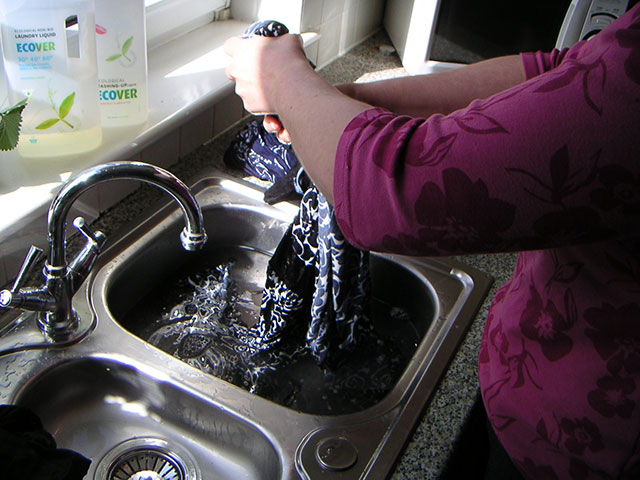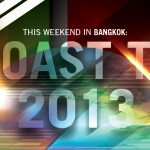10 Guidelines for Long-Term Travelers

I originally began writing this post last December (2012). It was about one month into my most recent Asia trip. Unfortunately, after writing for about 4 hours straight, at about 2am, a terrible WordPress crash erased the entire original post.
Alley cats howled in anguish. Babies screamed. Tremors of frustration overtook me.
As a result, I never finished it. It’s not until now (Sep 2013) that I FINALLY wrapped this up.
While everything here is all good advice, I’m working on a piece about travel tips that will blow this and anything else out of the water – so stay tuned.
The Ten (click on any link to skip to section):
- Get what you can, when you can (food, gas, water, etc.)
- Wash your clothes by hand every other day
- Determine a monthly and daily budget
- Your stomach is your greatest enemy (or ally)
- Adjust to the local groove
- Beware of scams.
- Five finger shoes.
- How to Travel Single
- When you get upset or anxious, ask why.
- Don’t eat food that’s sitting out.
Get what you can, when you can (food, gas, water, etc.)
When people think of travel, oftentimes they imagine vivid images of white-sand beaches and bliss. But real travel isn’t a postcard. One of my personal most common frustrations while traveling is being on the verge of discovering some incredibly cool remote place, but I have to turn back around because I don’t have the gas to make it back.
Eat when you can, sleep when you can, fuel up when you can. A world of adventure awaits, but tend to your basic needs first. Thanks to all the travel on buses, trains, and couch surfing I’ve done, nodding off to sleep is a breeze these days. Clasp arms around travel bag and close eyes.
Wash your clothes by hand every other day

This might seem like one you’d shrug off – but it would be a mistake. If you’re a backpacker, you’re traveling light, and wearing the same clothes several times a week. These are the only articles of clothing I brought on my most recent long-term trip to Southeast Asia:
- 2 tank tops (one proper and a T-shirt where I cut the sleeves off)
- 2 T-shirts
- 2 pairs of shorts
- 2 pairs of underwear (soon replaced by two new pairs I bought in Bangkok, and subsequently thrown out)
That’s it. Not gonna lie – traveling this light is a blast.
The Catch
When I was traveling in Thailand I had a misguided notion that I’d get my laundry done properly – in a machine, like I do back home, and I waited over a week to put in the entire load of clothing. Well, my experience was a disaster.
Unfortunately, I was moving about so frequently in the hot sun, sweating constantly and not keeping my clothes clean all the time caused me to develop all sorts of skin irritation and rashes which caused all kinds of discomfort. In Thailand, riding motorbikes in the sun all day caused me to develop a painful inner-thigh rash, which made walking long periods of time too difficult.
My room became so inundated with baby powder that I had to walk through a powdery mist to get from the door to the bed. Motherf*cker.
Anyway, learning my lesson, I began washing articles of clothing separately in the sink with soap, and ceased to have problems. My suggestion is to do the same.
It’s simple, it’s quick, and it’ll keep your clothes clean and your skin healthy.
Determine a monthly and daily budget

Money is an important part of everyone’s life. Without it, one has no means to do anything, let alone travel.
Many people let their lives be consumed by the desire for money, and devote 40-50 years of their life working 40 hours hours a week in pursuit of it.
But here’s the cool thing: anxiety over money is completely optional. It’s a simple creation of the mind.
For the better part of a decade, I didn’t get this. When it came to managing money, I had no self-control or any idea what I was doing. So my natural tendency was to become a complete miser – not letting myself have any fun when I really wanted to, justifying my actions by thinking “I need to save money.” But then, sure enough, I would blow my savings on something foolish and be right back where I started. It didn’t make me to long to realize I was walking on a treadmill, getting no where.
Being several thousand miles from home, however, forced me to adopt new behaviors quickly. Without the safety blanket of being home, I had to take charge of my financial habits. It took time to fully develop my proficiency in this area, but I finally learnt how to become a master over money – rather than being mastered by it.
And the answer, interestingly, was NOT to make more money. It was simply gaining over control over it.
The techniques I’ve developed for money mastery represent perhaps my proudest accomplishments to date. I started out as a complete mess, being stressed out over money day and night, to the point where I couldn’t sleep, and now I can go through my day hardly thinking about money at all. It’s a huge weight of my chest.
Once you become settled into a new overseas location, perhaps after a few days, take out a sheet of paper. Draw a line down the middle. On the right list out all of your current financial assets (also list anything you might be able to sell or liquidate down), any cashflow, cash on hand, and your current bank balance. Try to get an accurate estimate of your current net worth.
On the right side, calculate the monthly cost of the each of your necessities: Rent/Housing, Food, Water, and Transportation.
Here is an actual peak at what my sheet looked like during a recent trip:
Expenses
Rent/Living……… $100 / mo.
Food……… $450 / mo.
Water……… $15 / mo.
Transportation……… $150 / mo.
Total for Necessities……… $715 / mo.
This means that I can set a monthly budget of $900 USD for myself, $715 going to necessities, leaving $185 + any savings to allocate for enjoyment purposes.
A good exercise to try for 5-10 days is to carry a folded-up sheet of paper in your pocket and record each expense or purchase you made during the day. It’s helpful because you can review what you spent money on at the end of the day, compare different days, and see how you are doing. You can also determine what a reasonable daily budget will be, and multiply it by 30 to determine your monthly budget.
You don’t need to adhere to this exercise throughout your entire trip – what we’re really doing is just building up these muscles.
Finally, I propose a daily exercise that’s far simpler: Once you’ve written down your daily budget, at the start of each day, put ONLY that amount in your wallet. So if your budget is $30, start the day off with $30 and leave the rest of your currency in your room or backpack. This makes things super simple and easy.
Your stomach is your greatest enemy (or ally)
Let me explain.
Research performed on high-performance athletes found that those athletes who ate the same foods each day with little variation had the lowest percentage of body fat. Streamlining your diet also frees up your decision making powers. I eat the same foods at least 80% of the time. But a couple of years ago, I would always waste at least 20 minutes each day trying to decide what cuisine I wanted for lunch. It was a big distraction.
For the sake of our wallets and tastebuds, it’s always best to supplement that 80% with No matter where you might find yourself in this wide world of ours, the local fares always tend to be the best – and the cheapest. In Southern California, burritos are ubiquitous – and delicious. But Indian food is ten times as much as it costs in India. In Thailand, Italian food costs about ten times more than Thai food.
There’s no real surprise here. But what I always find odd is that for some reason I always seem to want what I can’t have or at least what is hard to get. I ate a TON of western food while in Thailand, but now that I’m back in the US, I eat Thai food almost every day. When I was in Cambodia and Vietnam, I ate Indian food perhaps every other day.
But always try to eat local food for at least half of your meals. It’s almost always better, and it’s surprising how much money can be saved over time.
One thing I’ve never, ever compromised on is breakfast. Please give me some sort of western breakfast with eggs each day. None of this sticky rice or medialuna crap. And please no noodles for breakfast either…
Adjust to the local groove.

You might notice while traveling and meeting other travelers that everyone has their own travel style. As far as backpacking goes, I’ve identified two main groups. The first is the month-long (or “too-weak”) traveler who has a month to roam about a region and return home, usually staying in each place an average of 2-3 nights before hopping off to the next destination. Their trips are entirely pre-planned and they cannot change them if they wanted to.
Then there are many travelers on the “backpacker circuit” that have been traveling for SO LONG that travel has lost most of its meaning to them. Often these people worked for a year as a window-washer or a miner in Australia, and saved up enough money to travel the world for three years. That’s not the problem. The problem is they let themselves become complacent. If you go to “backpacker hubs” like Chiang Mai, Cebu City, Vang Vieng, Goa, etc… you can find people like this. They simply sit around at a cafe or hostel all day long and do virtually nothing.
Neither of these speeds of travel are particularly desirable. Either a person has never left their comfort zone at all, or they’ve simply taken it with them to a new country.
Every time you visit a new place, take all speed to explore. Discover every street, every alley, every nook and cranny. There will be all kinds of pleasant surprises – you could discover a great restaurant or an interesting class to enroll in. Maybe there’s an awesome Jazz or Tango show every Wednesday night that you’re missin out on. Perhaps you’ll run into some locals who will invite you into their home for a drink. Additionally, post information about yourself in the local CouchSurfing forum and find others to explore with. What you don’t want is to be planning to leave somewhere tomorrow, and ONLY then be awakening up to the really fascinating intricacies of that place.
I can’t tell you how long to stay in each place that you travel to. I’ve done fast-paced travel (2-3 nights) in each place by couchsurfing, and also rented apartments in foreign cities for several months at a time. My preferred length of stay in each location used to be a minimum of 10 nights. I would now say that lengths of time are arbitrary: stay as long as you need to in order to develop real, meaningful friendships with people. Traveling all around the world will burn you out quickly if you’re always meeting “five-minute friends” everywhere you go.
Beware of scams.
Of course there’s the obvious ones. A taxi or tuk-tuk driver wants to take you to the “tourist information center” or to a suit shop, or a gem store, or whatever. Of course, he receives a commission if you spend money there. Unfortunately, rather than being service providers, many of these folks look at all foreign travelers as potential meal tickets.
But there are other, less apparent ones to look out for. And let’s be real, I’ve been a victim of my own fair share of scams. A guy on the streets of San Francisco once sold me a package which he said contained an “Apple laptop” that he took from the back of a shipping truck. When I opened the package to find an empty box full of bubble wrap and rubbish, he was nowhere to be found. In Bangkok, I encountered what I perceived to be a pervasive and common scam involving the use of ticket vouchers in a food court of the MBK shopping center. They “require” you to pay for your meal by purchasing vouchers, and then using these at the restaurants. Only, I gave them 1,000 Thai baht and received 900 back. When I counted it and pointed it out to them, they gave me the correct amount – but lo and behold, when I returned to redeem the unused vouchers at a different kiosk, they short-changed me 100 baht yet again.
Most of these scams are merely glancing blows, and serve mainly as annoyances. But learn to keep your wits about you. If you plan to rent an apartment, the best course of action is to enlist help from locals. Tell them you want to rent a spot, ask them for advice, and they may tell you about some different options that they know through friends, or friends or friends. Ask them to make a call on your behalf, and request that they do not reveal that you are a foreign visitor until pricing has been agreed upon.
This is much better than trying to respond to ads in English on your own, because you will almost always overpay, since these ads are targeted to foreigners. In Thailand, I saw several English ads for apartments that I deemed were at least 3 or 4 times too expensive based on my local knowledge of the area.
Lastly, if you sense anything odd or something seems too good to be true, trust your gut. Do research in the areas you are visiting, and talk to locals to identify common scams.
Five finger shoes.
 People sometimes laugh at me for these. But I swear by them. Five-finger shoes are my secret weapons, and in my humble opinion, THE best shoes you can use for travel, period. They’re incredibly comfortable to walk around. You can walk for long hours or days and never experience any foot pain whatsoever. They’re also great for keeping your posture sound, reducing strain on your back, and building the muscles in your feet – because you’re walking the way you ought to be, without the excessive or awkward padding and shape that you find in most shoes today.
People sometimes laugh at me for these. But I swear by them. Five-finger shoes are my secret weapons, and in my humble opinion, THE best shoes you can use for travel, period. They’re incredibly comfortable to walk around. You can walk for long hours or days and never experience any foot pain whatsoever. They’re also great for keeping your posture sound, reducing strain on your back, and building the muscles in your feet – because you’re walking the way you ought to be, without the excessive or awkward padding and shape that you find in most shoes today.
With that said, if you can’t afford the more expensive Vibrams shoes, try the Skeletoes from FILA, which start at $39.99 (I receive no compensation from FILA whatsover). I’m no running enthusiast, prefering other forms of exercise, but for traveling my feet have never been happier then in a pair of five finger shoes.
If you’re still not into trying some five finger toe shoes, then at least bring the most comfortable pair of footwear that you can. As is usually case when backpacking, less is more. More padding and more cushioning in the shoe causes the muscles in our feet to atrophy, making us more injury prone.
So if you’re not hip to five finger shoes, at least try to walk barefoot as much as possible to strengthen the muscles in your feet.
How to Travel Single
It’s undeniably a romantic notion to meet a special someone while traveling. It’s the chance encounter that develops into something more. Maybe fate is at work.

There’s no doubt that if you’re a traveler whose relationship status is single, meeting and spending time with other travelers of the opposite sex from all over the world is enticing. Everyone is free from the usual constraints and responsibilities that come from being at home, and more available to spend time with new people, and explore. But it’s not all rainbows and butterflies, and much of the time it will be the opposite.
Before investing too much time in someone, assess the situation. Try to find out if the person you want to meet is alone, with someone, or with a group. Develop powers of observation. When you talk to that person, gauge the situation as best as possible.
In my experience, most of the conversation drifts toward travel, activities, parties, fun, etc – and they won’t tell you if they have a significant other unless you ask them. It’s definitely in your best interest to find out early on. Rejection always sucks, but it can easily ruin your evening if you spend four or five hours of fun with someone, develop interest, and then get shot out of the sky once you try to make a move. Mayday!!
As far as pickup lines go, DON’T get clever or creative – no one is charming and witty all of the time, and this will backfire because in 90% of situations you won’t know what to say. DO move past the monotonous questions like “Where are you from? Where are you going? How long are you traveling?” and be a little different in your approach. Your energy is what’s most important – pretend like you’re talking to a good friend, and let your personality shine through!
Try to find interesting things about the situation or environment you’re in, and use these. Yet again, the powers of observation come in handy. For example, if you see someone taking pictures, go up and ask, “How are the photos coming out?” Everyone loves to share their photos. Share and exchange stories. If nothing else, you’ll gain a new friend.
The bigger picture is, it’s easy to be disappointed if you’re single and traveling. There are a number of barriers that make romantic encounters with other travelers a challenge. Short-term stays in one location, lack of reliable communication, absentee boyfriend/girlfriend, etc. Mingling with locals can be difficult due to language barriers, but can be mitigated by meeting through online dating and meetup sites and groups, where English ability is usually a requisite. Many locals are looking for superficial “hook-ups” with foreigners. Other travelers you encounter may be looking for no-strings attached fun, too. On extremely rare occasion, you may spend a few magical days with someone and want it to last a lifetime.
You don’t have to be lonely while traveling single. Traveling brings with it its own unique set of challenges, but that doesn’t mean you shouldn’t put forth an effort. And if you don’t rejected once or twice, then you’re not playing to win! When you compare the temporary sting of rejection to the pain of leading a lonely life, its easy to see where your priorities should be.
When you get upset or anxious, ask why.

Every single one of us has good and bad days. If you’re out in the world, taking chances, living outside of your comfort zone, bad things can and will happen to you. Further, being in a foreign and unknown environment multiplies to any stress or anxiety you feel.
I’ve had all kinds of shit happen to me while traveling. One of the worst was a hiking accident in Taman Negara, Malaysia, which left me with a broken foot and several shattered teeth. I had to postpone my ongoing travel plans indefinitely while I coped with incredibly excruciating pain (barely able to eat a couple of pieces of bread a day) while hopping around Kuala Lumpur, a major metropolis, on crutches for over a month.
We can’t do anything to prevent bad things from happening to us or eliminate all of our problems entirely. All we can do is let them happen. But we can minimize the effect that external events have us on by installing patterns in place once they do take place.
One of the healthiest exercises we can do is keep a notebook to write in when we’re feeling upset. The simple act of putting thoughts to paper helps to get them out of your head. But there’s an additional bonus: by asking ourselves “Why?” when we feel upset, two things happen: we realize that any problems are only temporary, and we can begin putting together solutions to solve these specific problems.
Truly, the overall feeling of unease causes us more harm than the tangible detrimental effect of any adverse experience. Writing out our feelings and expressing them on paper is therapeutic. You can see some of my scribblings during one of my early efforts at this exercise here.
These days, I keep it as simple and direct as possible. Get it out and be done with it. Write down everything you feel, and hold nothing back. If you feel someone in your life is a worthless waste of flesh, put it down. Don’t try to coach yourself or be your own therapist as it will just stir up more conflict.
Don’t eat food that’s sitting out.
Don’t get me wrong here, I’m all for buying from street stands and hole in the wall spots. I draw the line at rats, and food that’s openly sitting out, however.
This might hit you in a blinding flash of the obvious: You will get sick.
It is far better to let your stomach munch on itself for a little while or even to eat processed package food from a convenience store. From these any stomach sickness will only last a few hours, but getting sick from eating bad, bacteria-laden food can easily set you back several days.
In Thailand I had a roommate that got so sick from diarrhea that he had to spend three nights in the hospital. I’m telling you, it was REALLY bad. He’ll probably hate me for posting this, but I hope it will save you from a similar fate.
I love street food, stalls, and food carts. Just be careful. If it’s on a busy street with a ton of pollution that’s not a good sign.
Laos is one of my favorite places in the world to find a change of pace, and the street food is second to none. All-you-can-put-on-your-plate street buffets for only $1.25 USD. That is not a typo. Since the food was sitting out in big piles, I kept myself safe by digging out food from the bottom of the pile. It was sheltered by the food on top, and didn’t come into contact with potential pathogens transmitted through the air. But, as anyone who has been to Asia will tell you: lots of food sits out in the open for hours and hours. Dine carefully.












